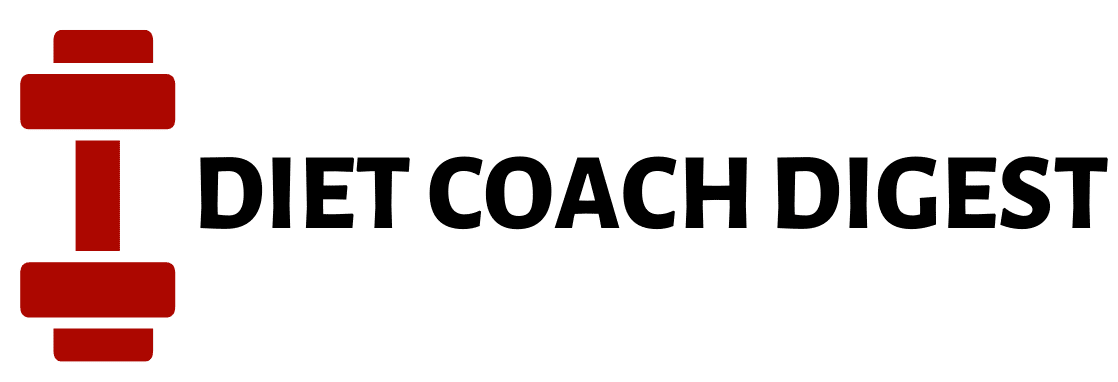How To Unlock Thyroid Health With Zinc Insights

- Should You Train To Muscle Failure Every Set? What You Need To Know - March 4, 2025
- Nutrition in a Hurry: Top Post-Workout Snacks for Active People - February 20, 2025
- 15 Healthy Meal Prep Recipes: Your Weight Loss Made Easy - February 18, 2025
Zinc is a vital micronutrient in thyroid hormone synthesis and metabolism, playing essential roles in T3 and T4 production pathways. This mineral catalyzes the conversion of T4 to active T3 while facilitating thyroglobulin synthesis, a vital precursor for thyroid hormones. Zinc deficiency can markedly impair thyroid function, manifesting symptoms like fatigue, weight fluctuations, and metabolic disruptions. Supplementation with 30-40mg of zinc daily may enhance thyroid hormone synthesis, receptor sensitivity, and conversion efficiency. Understanding the zinc-thyroid connection reveals fundamental insights into optimizing endocrine health and metabolic regulation through targeted nutritional intervention.
Key Takeaways
- When taken under medical supervision, zinc supplementation of 30-40mg daily enhances thyroid hormone production and T4 to T3 conversion.
- Regular monitoring of zinc levels alongside thyroid markers ensures optimal hormone synthesis and metabolic function.
- Zinc deficiency symptoms mirror thyroid dysfunction, making comprehensive testing crucial for accurate diagnosis and treatment.
- Zinc catalyzes essential thyroid processes by supporting thyroglobulin synthesis and improving hormone receptor sensitivity.
- Adequate zinc intake helps regulate metabolism, energy production, and body temperature through improved thyroid function.
Understanding Your Thyroid Zinc Connection
Have you ever considered the intricate relationship between zinc and your thyroid function? This essential mineral plays a fundamental role in the complex endocrine system, particularly in the synthesis and metabolism of essential thyroid hormones T3 and T4. These hormones orchestrate crucial metabolic processes throughout the body, influencing energy production, heart rate regulation, and thermal homeostasis.
The thyroid gland’s ability to manufacture and release these hormones depends greatly on adequate zinc levels. Without sufficient zinc, the intricate biochemical pathways responsible for hormone production become compromised, potentially leading to thyroid dysfunction. Despite its critical importance, the zinc-thyroid connection often remains overlooked in conventional thyroid assessments. Understanding this relationship provides valuable insights into maintaining ideal thyroid function and overall metabolic health.
Essential Functions of Zinc
Zinc’s biochemical impact on thyroid function extends far beyond basic mineral supplementation, serving as an essential cofactor in multiple hormone-dependent pathways. This trace mineral orchestrates critical processes in thyroid hormone synthesis and metabolism, fundamentally influencing overall endocrine health.
Key biochemical functions of zinc in thyroid physiology include:
- Catalyzing the conversion of inactive thyroxine (T4) to biologically active triiodothyronine (T3)
- Facilitating the synthesis of thyroglobulin, the precursor protein essential for T3 and T4 production
- Regulating the hypothalamic-pituitary-thyroid axis through zinc-dependent transcription factors
- Modulating thyroid hormone receptor sensitivity and nuclear binding capacity
These mechanisms demonstrate zinc’s integral role in maintaining peak thyroid function, highlighting its significance in endocrine homeostasis and metabolic regulation. Moreover, zinc deficiency can lead to symptoms that mimic thyroid dysfunction, making it crucial to maintain adequate zinc levels for optimal health.
Signs of Zinc Deficiency
Recognizing zinc deficiency symptoms presents a complex diagnostic challenge due to their significant overlap with thyroid dysfunction markers. Primary indicators include metabolic disruptions manifesting as unexplained weight fluctuations, chronic fatigue, and compromised thermoregulation, particularly cold intolerance. These symptoms often mirror hypothyroidism, as zinc deficiency directly impacts T4 to T3 conversion.
Additional clinical manifestations include gastrointestinal disturbances, especially constipation, and impaired nutrient absorption. Biochemically, patients may exhibit decreased serum T3 levels, elevated TSH, and suboptimal thyroid hormone receptor functionality. The intricate relationship between zinc status and thyroid function necessitates thorough evaluation, as deficiency can precipitate a cascade of hormonal imbalances affecting multiple metabolic pathways. Laboratory assessment of both zinc and thyroid markers is essential for accurate diagnosis and targeted intervention. Moreover, maintaining adequate hydration is crucial for optimal kidney function and overall metabolic health, as dehydration can influence both thyroid and zinc status.
Zinc Supplementation Benefits

Strategic supplementation of zinc offers profound therapeutic potential for individuals exhibiting thyroid dysfunction and related metabolic disturbances. Clinical studies demonstrate that ideal zinc supplementation enhances thyroid hormone synthesis and conversion pathways, particularly in the critical T4 to T3 transformation process.
Key therapeutic benefits of zinc supplementation include:
- Enhanced production of thyroglobulin, facilitating improved T3 and T4 hormone synthesis
- Improvement of cellular thyroid hormone receptor sensitivity and binding capacity
- Augmented conversion efficiency of inactive T4 to metabolically active T3
- Restoration of proper hypothalamic-pituitary-thyroid axis signaling
Research indicates that supplementation with 30-40mg daily zinc effectively ameliorates thyroid dysfunction symptoms when administered under medical supervision, particularly in cases where conventional thyroid treatments show less-than-ideal results. The National Library of Medicine provides extensive research on the intricate relationships between minerals and endocrine function.
Taking Control of Thyroid Health

Taking control of thyroid health requires an extensive understanding of three interconnected systems: zinc homeostasis, hormone metabolism, and endocrine feedback loops. Enhancing these systems demands strategic intervention at multiple biochemical checkpoints to restore and maintain peak function.
| System Component | Primary Function | Intervention Strategy |
|---|---|---|
| Zinc Transport | T3/T4 Synthesis | Monitor Serum Levels |
| Deiodinase Enzymes | Hormone Conversion | Supplement Support |
| TSH Regulation | Feedback Control | Routine Testing |
Clinical management necessitates regular assessment of zinc status, thyroid hormone levels, and metabolic markers. Implementation of targeted zinc supplementation, when indicated, can enhance thyroid hormone production and conversion efficiency. Practitioners must consider individual variations in zinc absorption, metabolic demands, and existing thyroid dysfunction when developing treatment protocols.
Frequently Asked Questions
Can Zinc Supplements Interact Negatively With Thyroid Medications?
Zinc supplements can interfere with levothyroxine absorption when taken simultaneously, potentially reducing medication efficacy. Medical professionals recommend spacing zinc and thyroid medications by at least 4 hours to prevent interactions.
How Long Does It Take to Restore Zinc Levels Naturally?
Restoring depleted zinc levels typically requires 3-6 months through dietary optimization, with serum concentrations gradually normalizing as cellular transport mechanisms and metallothionein synthesis adapt to enhanced zinc intake.
Which Medical Conditions Increase the Risk of Zinc Deficiency?
Medical conditions increasing zinc deficiency risk include malabsorption disorders, inflammatory bowel disease, chronic liver disease, diabetes mellitus, chronic kidney disease, and conditions causing chronic diarrhea or increased urinary zinc excretion.
Are Zinc Levels Affected by Stress and Intense Physical Activity?
Physiological stress and intense exercise elevate cortisol, which can deplete zinc stores through increased urinary excretion and metabolic demands. Athletic activity also increases zinc loss through perspiration and muscle catabolism.
Can Too Much Zinc Supplementation Worsen Existing Thyroid Problems?
Excessive zinc supplementation can interfere with thyroid hormone homeostasis, potentially disrupting T3/T4 conversion and competing with other essential minerals, leading to imbalanced thyroid function and hormonal dysregulation.
Final Thoughts
Like a finely-tuned metabolic orchestra, zinc orchestrates vital thyroid hormone synthesis and conversion pathways, fundamentally impacting T3 and T4 production. The evidence substantiates zinc’s essential role in maintaining ideal thyroid function through multiple biochemical mechanisms, including selenodeiodinase activity and thyroid hormone receptor interactions. Proper zinc homeostasis represents a vital factor in endocrine health, warranting careful clinical consideration in thyroid dysfunction evaluation and treatment protocols. The Mayo Clinic provides additional guidance on safe supplementation practices.
Table of Contents







